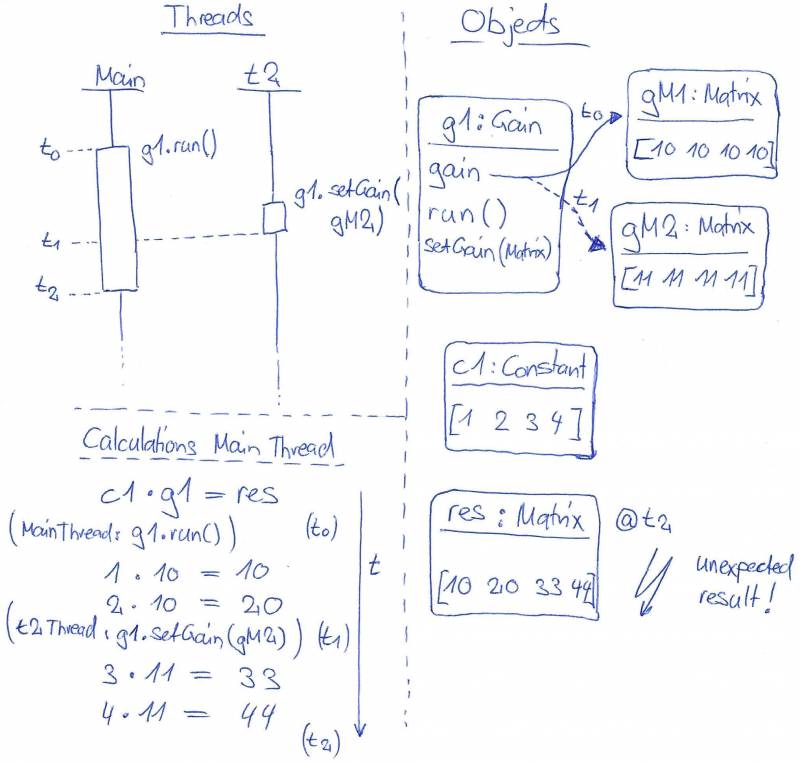This is an old revision of the document!
Thread Safety
In EEROS, blocks are basically accessed by multiple threads. EEROS blocks feature thread safety by providing exclusive access to critical memory locations by a mutex.
Concurrency can not be tested by Google Test framework. Therefore, test executables are needed which can be executed manually or via bash scripts.
To provide an example, a test program testing the Gain block is described below. The full source code is available at GitHub at:
The problem
The following code snipped and image show the issue simulated in the test program. The main thread calls g1.run() on the gain object. This method is doing a long calculation. Thread t2 is unfortunately changing the gain by calling g1.setGain(gM2) during the main threads calculation. This will finally lead to an unexpected result.
Matrix<M,N> gM1;
Matrix<M,N> gM2;
Gain<Matrix<M,N>, Matrix<M,N>,true> g1{gM1};
Constant<Matrix<M,N>> c1{m2};
std::thread t2{[&] {
g1.setGain(gM2);
}};
g1.run();
Matrix<M,N> res = g1.getOut().getSignal().getValue();
// Note: The above code is simplified for a better understanding.
The solution
The Gain block is now implemented thread safe by using the class lock_guard and a mutex. The code snipped below shows the setGain() method as an example.
virtual void setGain(Tgain c) {
std::lock_guard<std::mutex> lock(mtx);
gain = c;
}
The test program will not show an unexpected result anymore. To see the unexpected result, the locking mechanism must be removed (comment std::lock_guard<std::mutex> lock(mtx);).

